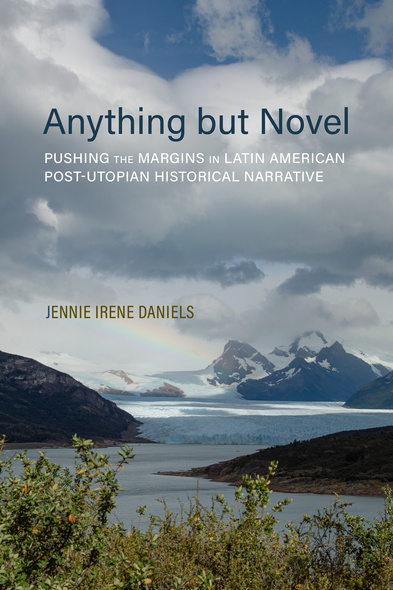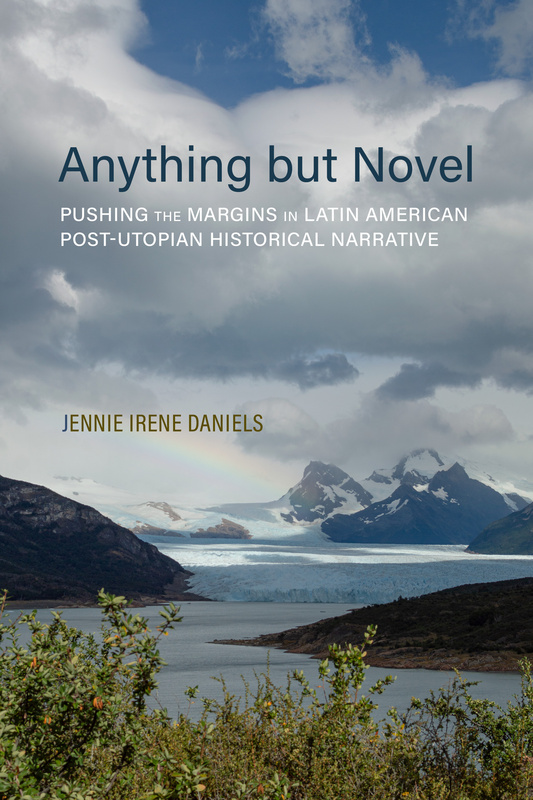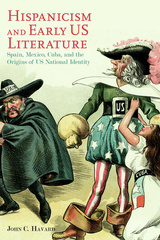
Anything but Novel
Pushing the Margins in Latin American Post-Utopian Historical Narrative
The first in-depth study in English to analyze post-utopian historical novels written during and in the wake of brutal Latin American dictatorships and authoritarian regimes
During neoliberal reforms in the 1980s and 1990s, murder, repression, and exile had reduced the number of intellectuals and Leftists, and many succumbed to or were coopted by market forces and ideologies. The opposition to the economic violence of neoliberal projects lacked a united front, and feasible alternatives to the contemporary order no longer seemed to exist. In this context, some Latin American literary intellectuals penned post-utopian historical novels as a means to reconstruct memory of significant moments in national history. Through the distortion and superimposition of distinct genres within the narratives, authors of post-utopian historical novels incorporated literary, cultural, and political traditions to expose contemporary challenges that were rooted in unresolved past conflicts.
In Anything but Novel, Jennie Irene Daniels closely examines four post-utopian novels—César Aira’s Ema, la cautiva, Rubem Fonseca’s O Selvagem da Ópera, José Miguel Varas’s El correo de Bagdad, and Santiago Páez’s Crónicas del Breve Reino—to make their contributions more accessible and to synthesize and highlight the literary and social interventions they make. Although the countries the novels focus on (Argentina, Brazil, Chile, and Ecuador) differ widely in politics, regime changes, historical precedents, geography, and demographics, the development of a shared subgenre among the literary elite suggests a common experience and interpretation of contemporary events across Latin America. These novels complement one another, extending shared themes and critiques.
Daniels argues the novels demonstrate that alternatives exist to neoliberalism even in times when it appears there are none. Another contribution of these novels is their repositioning of the Latin American literary intellectuals who have advocated for the marginalized in their societies. Their work has opened new avenues and developed previous lines of research in feminist, queer, and ethnic studies and for nonwhite, nonmale writers.
‘There is a timeliness to this study given the current events taking place in each of the four countries under consideration and perhaps a sense that the post-utopianism of previous decades is giving way to a renewed and sustained critique of neoliberalism.’
—Jason A. Bartles, author of Arteletra: The Sixties in Latin America and the Politics of Going Unnoticed
‘This topic is of importance to the field because there has been a strong utopian impulse in Latin American fiction throughout the 20th century as well as a tradition of historical fiction. Explaining the trend . . . is valuable because it broadens the concept of historical fiction beyond previous scholarly frameworks. Moreover, given that her analysis is firmly rooted in the historical and socio-political circumstances from which these texts emerge, it affords a deeper understanding of how this recent variant of the historical novel critiques the pernicious effects of neoliberalism in Latin American societies.’
—Adrian Kane, author of Central American Avant-Garde Narrative: Literary Innovation and Cultural Change (1926–1936)
Jennie Irene Daniels is associate professor of world languages, literatures, and cultures at the College of Idaho.





